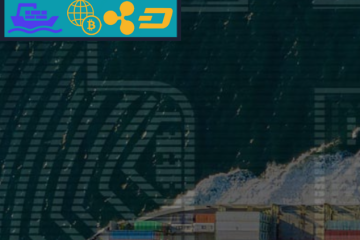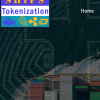Tokenization of Maritime Assets
Description
In recent years, the concept of tokenization has gained significant attention, especially in industries like finance and real estate. But what does tokenization mean, and how can it be applied to maritime assets? Let’s break it down in a way that’s easy to understand.
Tokenization refers to the process of converting real-world assets into digital tokens that can be managed on a blockchain. These tokens represent ownership or a share of the asset and can be traded or sold like stocks. In the maritime industry, this process is becoming a game-changer for how we manage ships, cargo, and other assets. Leading the way in this transformation is Shipfinex, a platform dedicated to tokenizing maritime assets and making the process smoother and more efficient.
One of the main benefits of tokenizing maritime assets is increased transparency. Traditionally, owning or trading a ship or cargo involved a lot of paperwork and intermediaries, which could lead to confusion and even fraud. With tokenization, every transaction is recorded on a blockchain, a secure and unchangeable digital ledger. This means that all parties involved can see the ownership history and the current status of the asset, making everything more trustworthy. Shipfinex exemplifies this by ensuring that all maritime transactions are transparent and easily accessible.
Another significant advantage is improved liquidity. In the maritime industry, buying and selling ships or cargo can be a lengthy process. Tokenization allows these assets to be broken down into smaller shares, making it easier for more people to invest in them. For example, instead of needing millions of dollars to buy an entire ship, investors can purchase a token that represents a fraction of that ship. This opens up opportunities for smaller investors who may not have the funds to buy whole assets. Shipfinex makes this possible by providing a platform where such tokenized assets can be traded effortlessly.
Moreover, tokenization simplifies transactions. When a maritime asset is tokenized, the process of transferring ownership becomes much faster and easier. Smart contracts—self-executing contracts with the terms of the agreement directly written into code—can automate various processes. For instance, once payment is made, ownership of the token (and thus the asset) can automatically transfer to the buyer without the need for lengthy paperwork or third-party involvement. Shipfinex leverages smart contracts to enhance the efficiency of maritime transactions, ensuring a seamless experience for users.
Tokenization can also enhance asset management. By using digital tokens, shipowners can better track their assets and ensure they are being used efficiently. This is particularly useful in managing cargo, as it allows for real-time tracking and monitoring of shipments. With platforms like Shipfinex, maritime stakeholders can gain valuable insights into their assets, optimizing their operations and reducing costs.
In conclusion, the tokenization of maritime assets is revolutionizing the industry, bringing transparency, liquidity, and efficiency to a traditionally complex process. With Shipfinex leading the charge, the future of maritime trade looks brighter, offering new opportunities for investment and growth. As this technology continues to evolve, it will undoubtedly reshape how we think about ownership and investment in maritime assets.
Video
Report abuse
Report abuse
You may also like...
All trademarks are the property of their respective owners. No affiliation or endorsement is intended or implied.



















